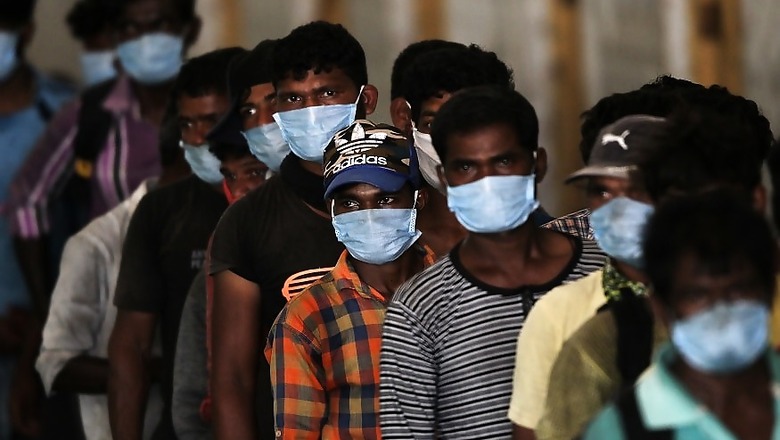
views
Gradual relaxation of the lockdown in India have led to fears among people of a surge of Covid-19 infections in the country, as a record toll is reported consistently over the past few days.
However, experts offer another insight into the matter.
According to them, the amount of people getting infected by a sick person - called the transmission rate - has steadily decreased, reports the Indian Express. It is now the lowest since its earliest calculations.
The transmission rate is a reliable way of predicting the rate of growth of an epidemic in a population. It is known as the reproduction number, R-value, or just R.
Scientists at the Institute of Mathematical Sciences (IMSc), Chennai, had calculated the reproduction number on March 24, just before the first lockdown began. It was found to be 1.83. That translates to a 100 infected people spreading the disease to 183 others on an average, the report states.
Since the consequent lockdowns, the rate dipped down to 1.49 and later 1.29.
And it has continued to decrease despite the easing of lockdown restrictions. According to an analysis by Dr Sitabhra Sinha and his colleagues at IMSc, India's R-value is now at 1.22.
Experts state that an epidemic starts to end only when the reproduction rate dips below 1. But despite the decrease in transmission rate for India as a whole, the real story may be more complicated.
States like Assam, Bihar, Odisha, Kerala, West Bengal are now registering more infections. Haryana, Uttarakhand, Chhattisgarh and Delhi have also recently joined the list of areas where since easing lockdowns, more infections have been reported.
Uttarakhand now has an R-value of 2, which is the highest in the country. Assam has registered a reproduction number of approximately 1.7, while Haryana is at 1.9.
This is where Maharashtra comes into play. While the state has seen 35% of India's Covid-19 cases, the transmission rate has now slowed down.
According to IE, the state's seven-day compounded growth rate of total Covid-19 cases has gone below the national number in over two months. Since the last three weeks, Maharashtra is also the reason behind the steady decrease of transmission at a national level.
According to Dr Sinha, the state's R-value is right now just 1.18 which is less than the national average.
He says that due to Maharashtra's case load, its slowed down rate has helped compensate for the rise in the R-value seen in other states. It has dragged down India’s R-value along with it, he added.
While about 25 states and Union Territories sport reproduction rates higher than the Indian average, slower rates in Maharashtra, Gujarat, and Rajasthan have helped India's infection growth rate steadily climb down the ladder.
However, as infections slow down in Maharashtra, the state may soon lose its hold over India's coronavirus curve, and the reproduction numbers of other states may begin to reflect.
Thus, the R-value at the national level would begin to represent the surge of infections in other states, the report adds.
Dr Sinha said that this process may already have begun, adding that it will become more evident in the coming days, IE reports.
He told IE that he expects the national R-value to rise within some weeks, adding that Maharashtra’s curve seems to be headed towards distangling itself from the Indian curve.
Then a bigger randomness in reproduction rate in India may be seen, he said, as it would respond to the figures in various states, and the unidirectional reduction that is being witnessed may not be there.




















Comments
0 comment